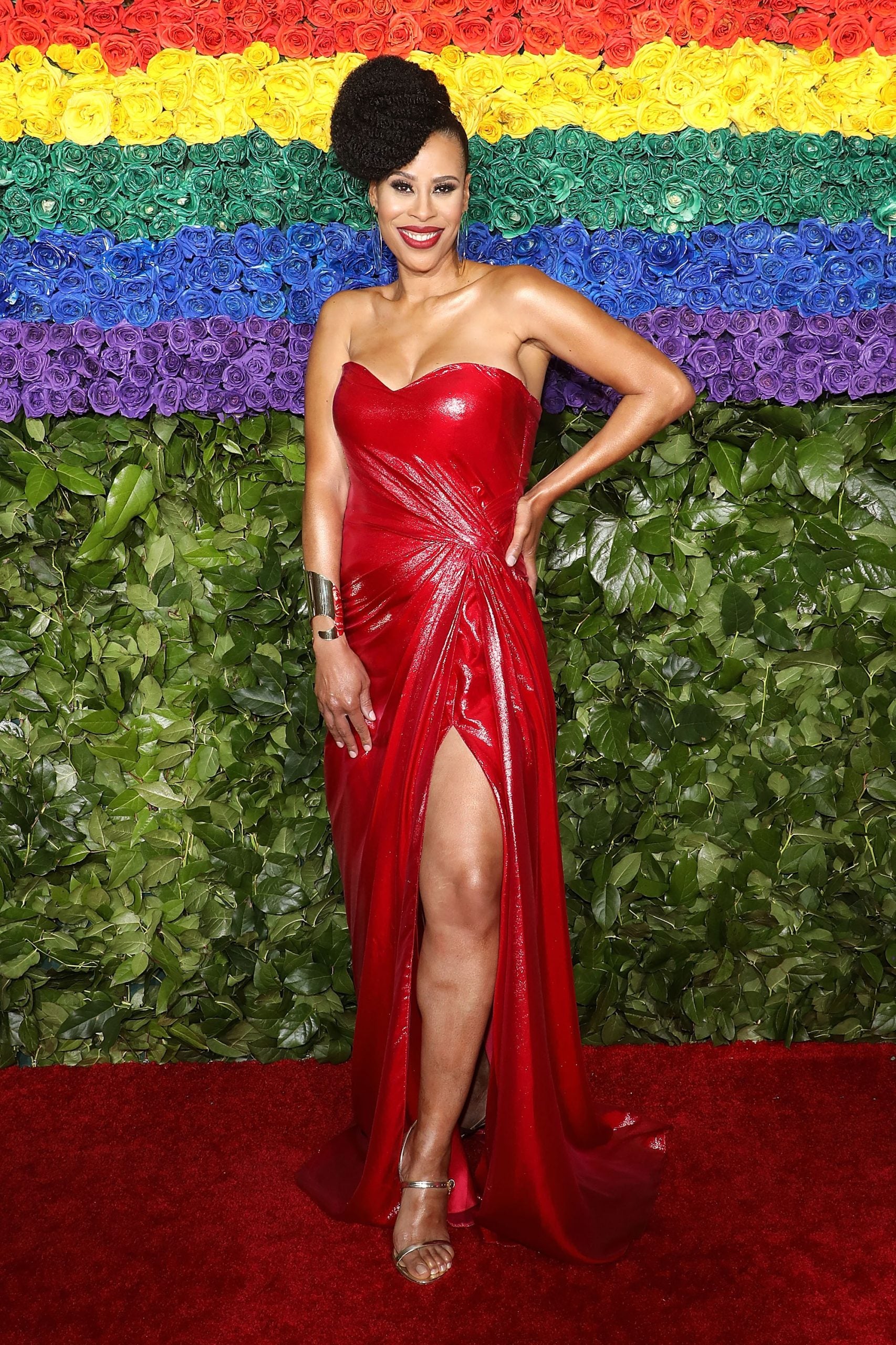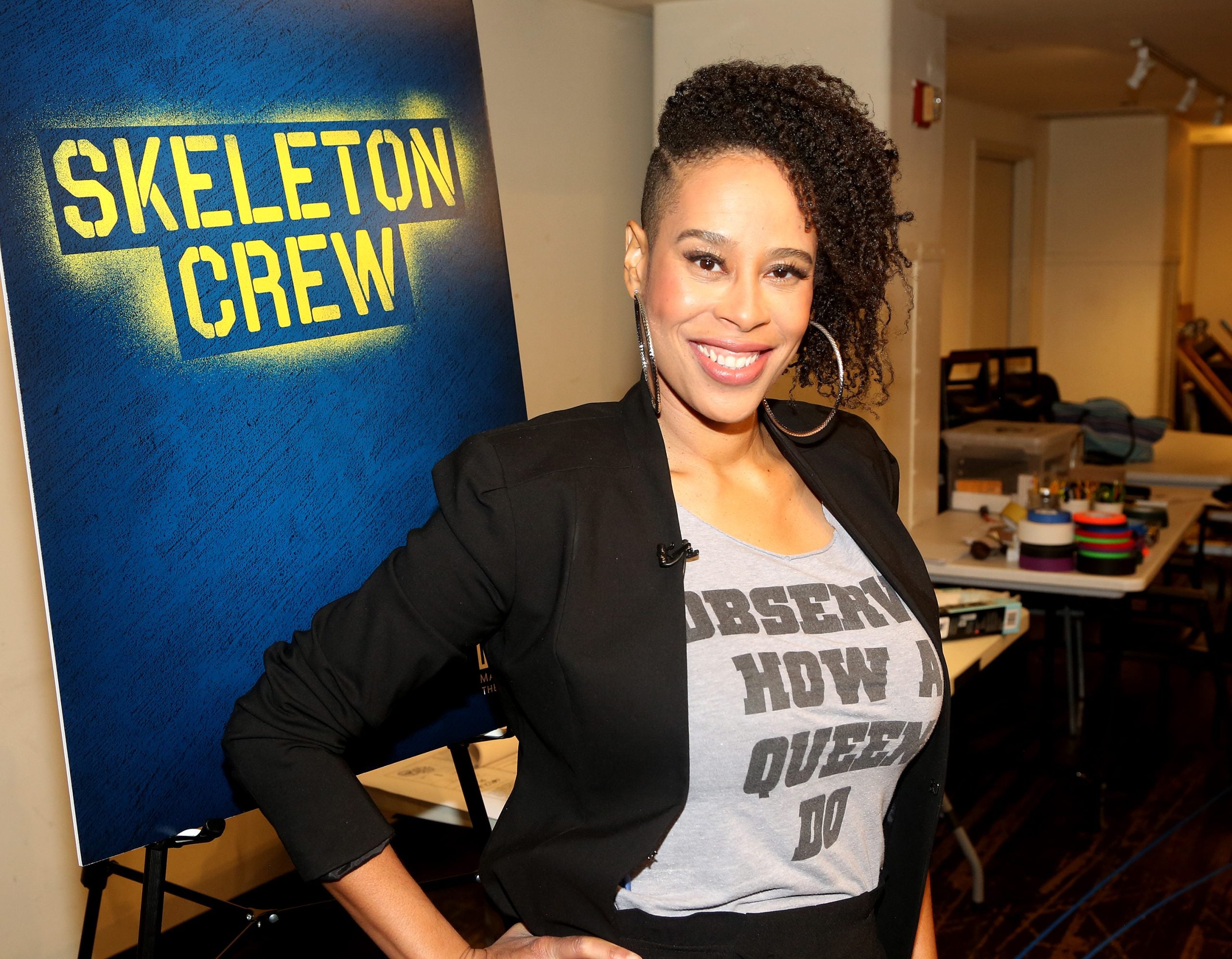
Dominique Morisseau is adamant about ensuring Black voices are thriving on Broadway. “I want visibility for Black theater makers and the Black folks who’ve been doing this work,” the actress and award-winning playwright told ESSENCE.
Morriseau does the work by connecting national conversations about globalization, academic discrimination, and rampant gentrification to everyday moments, like clocking in for a shift or covering for a colleague, on stage.
Before inspiring patrons to flock to Ain’t Too Proud – The Life and Times of The Temptations she created productions including Follow me to Nellie’s (Premiere Stages 2011), Sunset Baby (LAByrinth Theatre 2013), Blood at the Root (National Black Theatre 2014), Pipeline (Lincoln Center Theatre 2017), and Paradise Blue (Signature Theatre 2018). She learned just how much her efforts meant to people suddenly when learning how many of them argued she deserved the coveted MacArthur Fellowship.
She described the announcement as having “any other day in your life,” instantly reshaped into “the weirdest day of your life.”
“All of a sudden, you just turn up with this thing that you never had before and everybody’s congratulating you. But what I love about the MacArthr, is how much it supports people that are trying to do good work and keep us sustained to be able to do it for our lifetime,” said Morisseau as her son cooed in the background.

Her peers made the moment feel special. “They have to talk to about 30 to 40 of your colleagues and people in the field with you,” Morisseau explained. “So they vet you and I felt really honored to know that about 30 to 40 people in my field felt like I deserved this award.”
Now she is using the attention and accolades to advocate for change – loudly. “I sort of want to dismantle what Broadway already is, how Broadway exists and functions. I’d like to change that. I hope that my work can be a conduit to changing the way we even look at Broadway. Because right now Broadway is very narrow,” she stated.
Morisseau wants the artistry to exist outside of analytics. “Broadway is its own form of gentrification to the rest of theater, and I’d like Broadway to not be so driven just by economics, but that also driven by art and artistic value and inclusion and space for everybody.”
The first Black Glinda has just been cast in the Blockbuster show Wicked marking another barrier that has been broken. Morisseau described what she would like to see happening behind the curtain.
“I’d like to see more Black work being produced on Broadway. I‘d like to see more Latin work being produced on Broadway, more work from all artists of color in general. I’d like to see more work by women and women writers of color, and women directors and creatives of color,” she said before criticizing the disparity in the city’s population and those leading one of its greatest cultural assets.
“The city is one of the most diverse cities in the country. So leadership and who’s running Broadway needs to look like who lives in New York city.

Change has enveloped the New York City theater community thanks to COVID-19. Morisseau believes “community development,” can create meaning change without widespread exclusion. She penned a three act play that dives into the ways things have and have not changed in her native Detroit. The third play in the series aptly named Skelton Crew engages with “the foreclosure crisis,” and “the auto industry.” She was partially inspired by how her “family” and “just people that I loved” had been affected.
“I wanted to explore what was going on on stage,” she said.
Transitioning metropolises have been the stage for Morisseau’s life. After moving to New York shortly after 9/11 she doesn’t doubt the ability of Broadway to bounce back better than ever. “I’ve always come to a New York that was in New York, in mourning and rebuilding itself.” Her pen has aided in that rebuilding and now wants to use it to go further to support those working on her own productions.
“I’m not somebody who could put up work and have people be mistreated around me. I try to fight for my artists. I try to fight for everybody to be treated fairly. And I make sure that the spaces that I bring people into and they’re working with me in are healthy spaces,” she said. “I make sure that people feel safe being themselves and they don’t feel policed and have an opinion.”
It is important to Morisseau “that their creativity isn’t stifled,” she added. She flexes her own creativity across mediums, celebrating Black culture and honoring pockets of Black history in the process. She served as a co-producer on Showtime’s Shameless for three seasons.
“I have another musical in the works and this time with a legendary all Black woman creative team, myself and Camilla Forbes, who is the Executive Artistic Producer at the Apollo and Camille Brown, who’s the Tony nominated Black woman choreographer and the three of us are working on Soul Train The Musical,” she revealed. “I’m just excited to have more things that I’m bringing back to the stage. And then on television I’m developing a lot of shows. I have some shows in development with HBO and with Netflix.”
“I’m just excited to have stories to tell in all the different mediums,” she added.
The connection others have to her work’s impact motivates her. “This is something that means something to more than just me,” she said. “I should keep going.”
See Morisseau keep going in her latest play Confederates at the Signature Theatre. Tickets are available HERE.